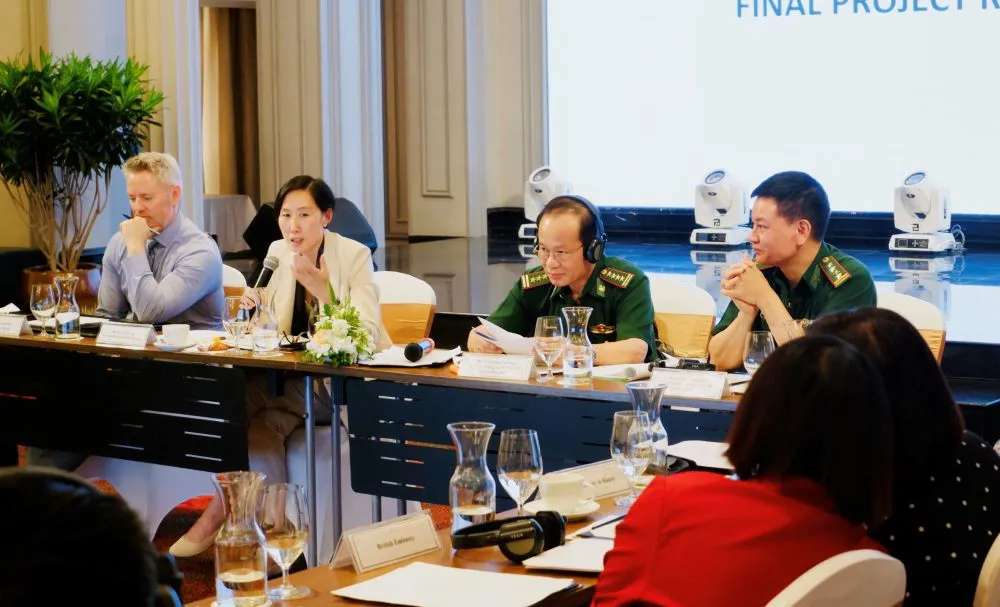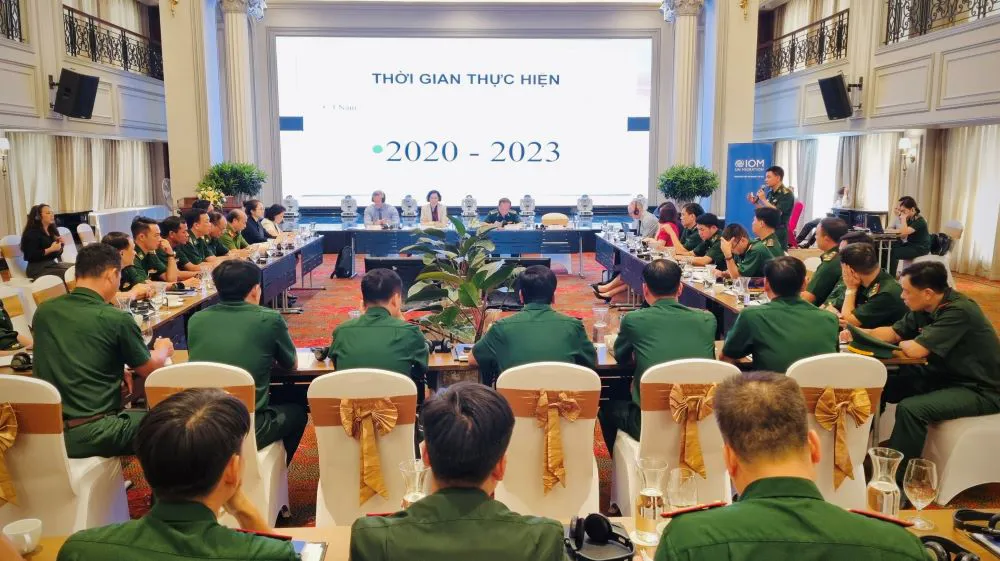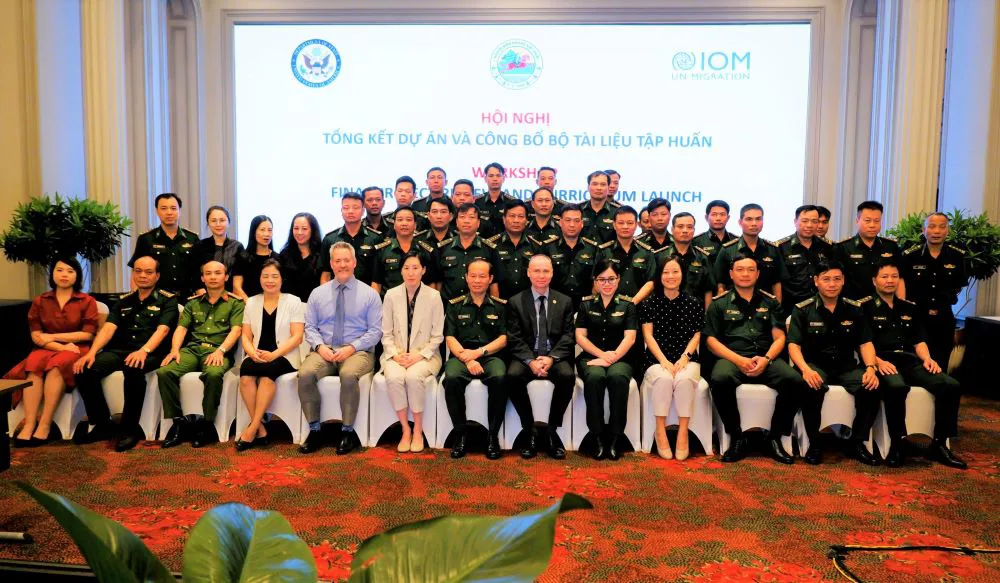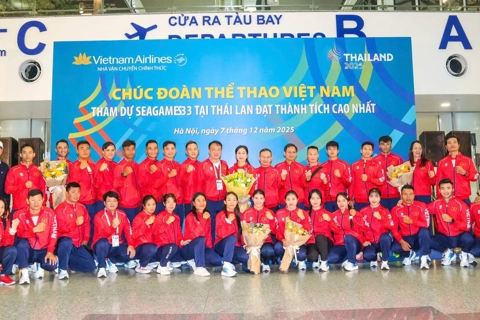Vietnam’s Border Guards crucial in fighting against trafficking in persons
The cutting-edge officers addressed progressing obstacles and contributed valuable support to transnational migration.
Vietnamese Border Guard officers are at the frontline to protect against trafficking in persons and facilitate safe and orderly cross-border human mobility for migrants.
They facilitate safe and orderly cross-border human mobility for migrants while maintaining border security. For that reason, supporting border guards’ engagement is one of the critical components of IOM’s mandate, said Park Mihyung, the International Organization for Migration (IOM)’s Chief of Mission in Vietnam.
| Park Mihyung, the International Organization for Migration (IOM)’s Chief of Mission in Vietnam, speaks at the event. Photos: IOM Vietnam |
Park Mihyung shared her view on the project “Frontline Training for Border Guards in Border Areas of Vietnam”, funded by the Bureau of International Narcotics and Law Enforcement Affairs (INL) of the US Department of State.
Trafficking in persons is a complex global problem that requires a coordinated response, she said at a workshop held on May 30 to wrap up the project and launch the “Training Curriculum on Counter-Trafficking and Victim Protection” both funded by the US Department of State.
The project, wrapped up after three years, profoundly enhanced the technical capacity of Vietnam Border Guards, especially frontline officers in hotspot border areas, to better detect, investigate and handle trafficking in persons (TIP) cases, as well as identify, protect, and assist trafficking victims.
Within the framework of this project, the training curriculum on counter-trafficking and victim protection for frontline officers was developed for use in training. The training curriculum was disseminated to Border Guard stations and Border Guard Academies in 12 target provinces in the North and South regions of Vietnam.
The project also creates a forum for the officers to exchange effective methods, professional skills, and practical experiences that have been successfully applied in retracing, investigating, and prosecuting TIP cases.
Park Mihyung said she is a strong supporter of this project from the very beginning and IOM is very proud to cooperate with the Department of Drug Control and Crime Prevention (DDCCP) of the Vietnam Border Guard to contribute to enhancing the capacities of Vietnam Border Guard officers.
“This project is a significant part of IOM’s work to support the Government of Vietnam to just strengthen its border management, but also contribute to the comprehensive effort under the nation’s Human Trafficking Prevention and Control Programme 2021-2025 and the National Implementation Plan for the Global Compact for Safe, Orderly and Regular Migration (GCM), of which Vietnam is an active member," Park Mihyung added.
| Overview of the discussion. |
The Vietnam Border Guard plays an important role in the fight against trafficking in persons and the provision of protection and support for trafficking victims. The Border Guard is in fact at the forefront of cross-border crime prevention and control, watching over 4,639 km of land borders and 3,444 km of coastlines. They frequently offer victims of human trafficking first and, in some cases, only contact as law enforcement officers.
IOM also coordinated with DDCCP to conduct end-of-training assessments at 6 hotspot provinces including An Giang, Kien Giang, Tay Ninh, Ba Ria – Vung Tau, Cao Bang, and Lang Son.
The assessment results provided valuable information on the ongoing trends and modus operandi of TIP criminals and irregular migration activities in border areas. They also revealed the challenges that border guards and victim support agencies must face in implementing processes and procedures for the investigation of TIP cases as well as trafficking victim protection and support.
The frontline officers who participated in the assessment also contributed useful intervention ideas and recommendations to address ongoing obstacles for consideration by IOM and the DDCCP in future cooperation.
| Participants at the event. |











